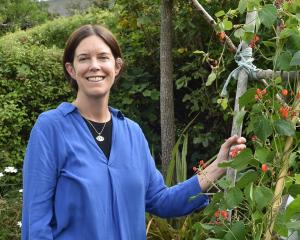
Australian author Cory Taylor's slim memoir is one to cherish, to return to occasionally and ponder anew, reviewer Elspeth McLean writes.
DYING: A MEMOIR
Cory Taylor
Text Publishing
The directness of the book's title is reflected in the writing within. Taylor, who died this month at the age of 61, wrote the book in a few weeks this year. First diagnosed with melanoma in 2005, she knew it would soon kill her.
Early on, we learn she had purchased her own euthanasia drug, but she goes on to explore the ramifications of using it, including concerns about exposing her family or others to extra trauma and possibly legal action (Australian law on assisted suicide is similar to ours).

Taylor hoped the safeguards she put in place about her end-of-life care would hold, although she admitted to occasional bouts of "beginner's nerves''. (Her death was reported to be peaceful, in a Brisbane hospice with her family at her side.)
She called for debate on assisted dying, challenging what she saw as the religious motive driving opposition to assisted dying for terminally ill patients.
Interestingly, given the debate here over the funding of late-stage melanoma drugs, she questioned the "morality of the Government subsidising expensive experimental cancer drugs, when other worthy areas of research go begging''.
She referred to an unnamed melanoma drug she took in 2014/15 priced at $A8500 ($NZ8930) a dose (although she got it free), to be administered every three weeks. It was soon listed on Australia's Pharmaceutical Benefit Scheme and attracted government subsidy, "despite its limited efficacy''.
Taylor examined her life and had regrets, but said "as soon as you start rewriting your past you realise how your failures and mistakes are what defines you. Take them away and you're nothing''.
The advantage of a slow death was the time to talk, "to tell people how you feel, to try to make sense of the whole thing, of the life that is coming to a close, both for yourself and for those who remain''.
It was somehow reassuring to read she didn't have a bucket list, that her priorities remained the same: her writing and family. She did not want to take up skydiving or paragliding, having always been physically cautious.
"The irony is that, despite my never having tempted death the way daredevils do, I'm dying anyway.''
Taylor writes economically and poetically. The book's ending is lovely, but I won't spoil it by quoting it. I will be seeking out her two acclaimed novels, Me and Mr Booker and My Beautiful Enemy, both published after her diagnosis, when she gave up her career as a screenwriter to concentrate on fiction writing.
Elspeth McLean is an ODT columnist and former health reporter.
Win a copy
The ODT has five copies of Dying: A Memoir, by Cory Taylor to give away courtesy of Text Publishing. For your chance to win a copy, email helen.speirs@odt.co.nz with your name and postal address in the body of the email, and ‘‘Dying Book Competition'' in the subject line, by 5pm on Tuesday, July 26.
LAST WEEK'S WINNERS
Winners of last week's giveaway, Gorillas in Our Midst, by Richard Fairgray and Terry Jones, courtesy of Scholastic, were: Francis Thompson, of Oamaru, Gary Read, of Wanaka, Robyn Parker, of Dunedin, and Janice Botting and Helen Jones, both of Mosgiel.











